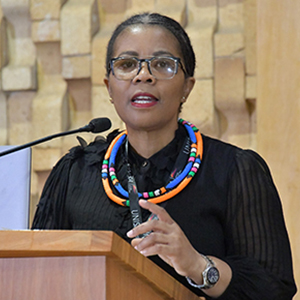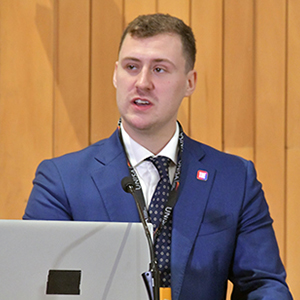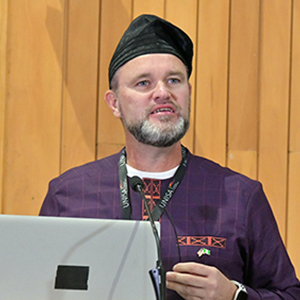News & Media
Refining quality assurance systems in the higher education sector
In partnership with Times Higher Education (THE), Unisa held the University Impact Forum on 21 September 2023 to explore ways to enhance quality education on the African continent. Attended by eminent higher education global experts, the forum's theme, "Developing and enhancing quality education in Africa", was based on the United Nations' Sustainable Development Goal 4 (SDG 4) on ensuring inclusive and equitable quality education and promoting lifelong learning opportunities for all.

Prof Puleng LenkaBula
THE is a British publication that reports specifically on higher education issues. It ranks university performances by providing data-driven insights and strategic consultancy support to agenda-setting events and hiring solutions, enabling institutions of higher learning to make more thoughtful and informed decisions on their practices.
The robust dialogue tackled issues such as the lack of investment in Africa's higher education, an unsustainable policy environment, competition from outside Africa for academic talent, international conflicts, and a colonial legacy that has created multiple socioeconomic challenges to which the sector must respond. The forum took place a year that Unisa celebrates its 150-year milestone.
Ensure inclusivity and sustainable growth
In her welcome address, Prof Puleng LenkaBula, Unisa's Principal and Vice-Chancellor (VC), stated that quality education entailed the commitment to epistemic transformation for Africans. "It also reaffirms the urge for justice, dignity and humanising cultures as we are also attentive to the ecological demands of our society," she said. For LenkaBula, one of the critical areas that Unisa must strengthen is the protection or projection of biotic natural resources and other earth resources, which is also central to the African Union's (AU's) Agenda 2063.

Tristan Horlick
LenkaBula explained that some of the questions the forum sought to address included "how higher education can meet the needs of learners from diverse communities without discrimination" and "the essential building blocks of delivering quality teaching, learning and research in Africa's higher education institutions".
As part of the opening address, Phil Baty, THE's Chief Global Affairs Officer, reiterated that quality higher education should be accessible to all. He added: "Community engagement projects will also unearth societal needs for educational institutions." In addition, Tristan Horlick, Regional Manager for THE Africa, remarked: "AU Agenda 2063's aspiration one outlines a prosperous Africa based on inclusive growth and sustainable development." He continued: "This speaks to transformed economies and jobs, as well as environmentally sustainable economies, which are possible through quality education." Horlick maintained that cooperation and global partnerships would enable knowledge exchange and best practices to tackle global challenges.
Finding collective solutions to societal issues
Keynote speaker, Dr DeWayne Frazier, President and Vice-Chancellor of the American University of Nigeria, attested that quality education opened doors that seemed impossible and changed people's life narratives. Highlighting areas that African higher education institutions must continually improve, Frazier pointed out that these include promoting curricula that can grow the economy, enhancing the quality of student services and co-curricular experience, and improving government policies and financial investment. He, therefore, encouraged African states to intensify education funding and infrastructure investment for sustainable socioeconomic benefit.

Dr DeWayne Frazier
Additionally, Frazier stated: "Collaboration with universities and various institutions in other countries can help African universities to enhance their global standing, access to resources, student exchange and research opportunities."
Frazier further acknowledged African countries that promoted access to education, such as Rwanda, Malawi, Kenya and South Africa. Regarding South Africa, he mentioned that it also promoted access to education for students with disabilities through inclusivity and prevention of unfair discrimination, indicating the country's legislative efforts to support them. Frazier reiterated that institutions of higher learning should serve the community.
He affirmed: "We can lose it all, but if we have education, we can use it as a powerful weapon to make impactful changes in society." He acknowledged Africa as the youngest but fast-growing continent: "Education should not be a right for the privileged, but a right for all."
The forum was also divided into panel discussions focusing on identifying challenges to delivering quality higher education, recommending high-impact, rapid and achievable policy solutions, and exploring student support's role in enhancing teaching and learning. Unisa also showcased its community engagement projects while the rest of the panel discussions also unpacked the role of community engagement to ensure relevant teaching, learning, research and innovation, the role of technology, artificial intelligence and business in teaching and learning, and showcased THE's data masterclass: SDG 4 and beyond.
Also read:
Unisa and THE collaborate to develop quality education in Africa
Unisa hosts THE to a network session: A showcase of world-class partnership
#Unisa150
* By Nancy Legodi, Acting Senior Journalist, Department of Institutional Advancement
Publish date: 2023/09/26

 Unisa co-hosts G20 community outreach in the Eastern Cape
Unisa co-hosts G20 community outreach in the Eastern Cape
 Unisans gain membership of prestigious science academies
Unisans gain membership of prestigious science academies
 Advocating for disability transformation through servant leadership
Advocating for disability transformation through servant leadership
 Unisa Press continues to illuminate the publishing space
Unisa Press continues to illuminate the publishing space